More than a gold medal
A close up of Flood’s prosthetic.
September 22, 2021
Annie Flood arrived on campus with all the usual belongings every new student would bring, but one thing set her apart.
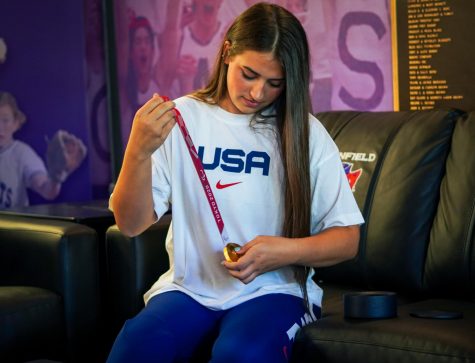
Her gold medal.
Instead of starting classes as a freshman at Linfield University the last week of August, the 18-year-old from Salem, Ore., was halfway around the world representing Team USA as a setter and the youngest member of the U.S. Women’s Sitting Volleyball Team at the 2021 Paralympic Games in Tokyo.
Flood stood in the tunnel seconds before Team USA took the court for the gold medal match.
“Even though there was no crowd, it felt like there were thousands of people watching us,” Flood said. “It was crazy! One of my best friends stands in front of me in the lineup, and we just looked at each other and were like, ‘This is happening. We could potentially be gold medalists after this.’”
While the achievement of bringing home a gold medal was something she’d dreamed of for years, it’s the road that got her to that gold medal that’s even more impressive.
Just like any other kid
Flood was born with fibular hemimelia in her right leg. This means that she was born with only three toes in that foot and a shortened femur and leg. She had the option to live her life in a wheelchair or have that foot amputated.
In her first few months of life, Flood faced the difficulties of trying to crawl and balance with only a few toes and a shortened leg. When Flood was only nine months, her parents decided to have her foot amputated. By the time she was 11 months, Flood had her first prosthetic.
With two competitive and athletic older sisters, Flood was always trying to do everything they did and keep up despite her disability.
“Growing up, I really wanted to be just like them,” Flood said. “I never wanted to feel like I was held back or disabled.”
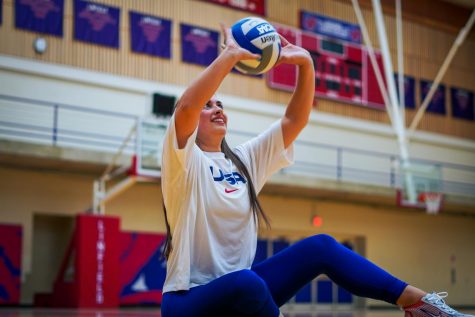
“Her having a prosthetic leg was our family’s normal,” said Maggie Flood, Annie’s oldest sister. “I don’t think I really even fully realized it wasn’t ‘normal’ until I was older.”
Flood tried out soccer, just like her sister Lindsay, who’s four years older, and played for 10 years, but she struggled with the running because she just didn’t have as much speed as the other kids. Then she started playing volleyball in middle school because Maggie, who’s seven years older, had played for years. She fell in love with the game and continued to compete through high school.
Before Flood was introduced to sitting volleyball, she wanted to be viewed as an able-bodied athlete. She didn’t know anything different and felt like she was just as capable as her two older sisters. Just because she had a prosthetic foot didn’t make her incapable of keeping up with everyone around her.
“My favorite memory growing up with Annie, at least regarding her birth defect, was when she was 4 and I was 11,” Maggie said. “I had to get glasses and she was comforting me and telling me she wished I didn’t have to wear glasses, but it would be okay because everyone has their ‘thing.’ She literally said, ‘You have glasses, Lindsay has asthma and I have a prosthetic.’”
Even at the age of 4, Flood not only understood her disability, but also used it as a way to help others and inspire them.
When she was 13, Flood attended an amputee camp in Ohio where she was able to try out sitting volleyball for the first time. Then, when she was only 14, she started training with the U.S. Women’s National Sitting Volleyball Team. This was all new to Flood because she had never really had exposure to Paralympic sports.
“Growing up, I didn’t really know much about the Paralympic Movement,” Flood said. “I didn’t know very many disabled athletes. But when I found sitting volleyball and when I started to learn more about what the Paralympics are, I didn’t really want to be a part of it. I just always saw myself as an able-bodied athlete.”
Flood viewed herself as any other athlete on her middle school and high school volleyball teams. Her prosthetic was part of her and had always been, so she didn’t want to do a sport that was specifically designed for her disability.
Training with the national team
Sitting volleyball isn’t a sport that many athletes have the opportunity to even try out because of how unique it is.
The sport originated in the Netherlands in 1956 and was invented by the Dutch Sports Committee as a rehabilitation sport for injured soldiers. It was a combination of volleyball and sitzball—a German sport that was played with seated players and no net.
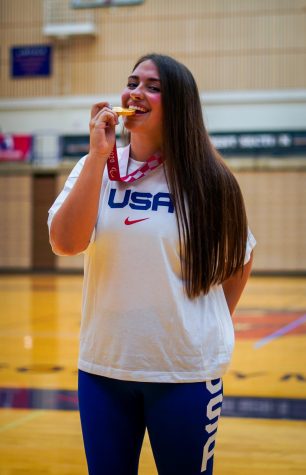
Sitting volleyball became an official Paralympic event in 1980 at the Arnhem Games in the Netherlands. The first time women’s sitting volleyball was included in an Olympic program was at the 2004 Athens Games.
The court is smaller and the net is lower than it is for standing volleyball. All players must remain seated the entire time, and they use their arms to scoot themselves around on the court throughout the game. The game is played with the same scoring rules as able-bodied standing volleyball with a best-of-five set format.
Flood is considered a VS2 athlete, which means she is in the less-impaired sport class. Each team can have up to two VS2 athletes, with every other member as a VS1 athlete. These classifications depend on the severity of the impairment and how it affects the core functions of sitting volleyball.
In 2019, Flood earned a spot on the women’s national team—she was still only a sophomore in high school.
During her senior year leading up to the Olympics, Flood made the decision to move to Oklahoma and train with the national team full-time. Flood had been traveling to Oklahoma about once a month for training camps, but in order to have a chance of making the Olympic Team, moving to Oklahoma for her senior year was in her best interest.
“Sending Annie to Oklahoma was both incredible and difficult,” said Linda Flood, Annie’s mom. “I knew the experience that comes with being a resident and practicing daily with her coaches and teammates would be invaluable for her volleyball growth, but it also meant we lost some special time and memories with her.”
Due to COVID, Flood’s school was completely online for her senior year, so she was able to study, attend class and graduate while being in Oklahoma and training for Tokyo. Flood learned to be completely independent that year. She got a job, drove herself to practices and learned to live on her own while only being a senior in high school.
The national team became Flood’s family away from home. Some of the members on the team are some of her best friends. Even though her family wasn’t able to be in Tokyo and watch her win gold, she was able to experience that moment with the people she had trained with every day in the year leading up to the games.
“I was really excited for her,” Linda said. “I knew that by playing at the national level, there would be a lot of opportunity for her to get really great training and experience a lot of amazing things—like going to the Olympics. I also knew that playing at this level would give Annie confidence to do other big things in her life.”
A dream for the future
“I’m very, very grateful I let myself get past the [nerves] of taking my leg off to play, and being in front of all these people, and being on camera and people seeing my leg,” Flood said. “As soon as I started to embrace it, I found out that I really loved my disability and I wouldn’t change it.”
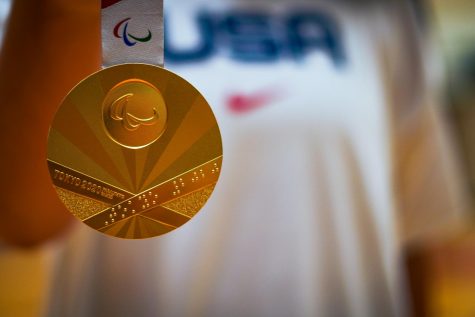
While Flood was given the chance to play sitting volleyball and eventually earn a spot on the Olympic team, she knows that not every person with a disability has the same opportunity.
“A big thing for me is advocacy for the sport because it’s my whole life,” Flood said. “Everything in me is dedicated to this sport and the Paralympic Movement.”
Flood hopes to bring awareness to her peers across the entire country by running workshops and having people try out various Paralympic sports. She wants other people with disabilities to realize that they too can compete, just like she discovered at the amputee camp in Ohio.
“I think if I didn’t have sitting volleyball, or just if I didn’t know about the Paralympics, I wouldn’t be myself,” Flood said. “I would be a very different person because my disability is a huge part of who I am. It’s always going to be.”
In a perfect world, Flood would travel to Oklahoma once a month to train with the national team for a weekend. She would also spend time there during breaks and potentially for a majority of the summer. However, Flood knows that balancing college classes, training on her own—since there isn’t a sitting volleyball team for her to train with while at school—and pursuing a degree in nursing will take an immense amount of dedication and responsibility.
But for now, it’s time for Flood to take a break from being a world-class athlete and transition to the life of a college freshman. Well, at least for a few weeks before preparation for Paris ’24 begins.
– Video by Wildcat Productions
To view more of the gallery click here

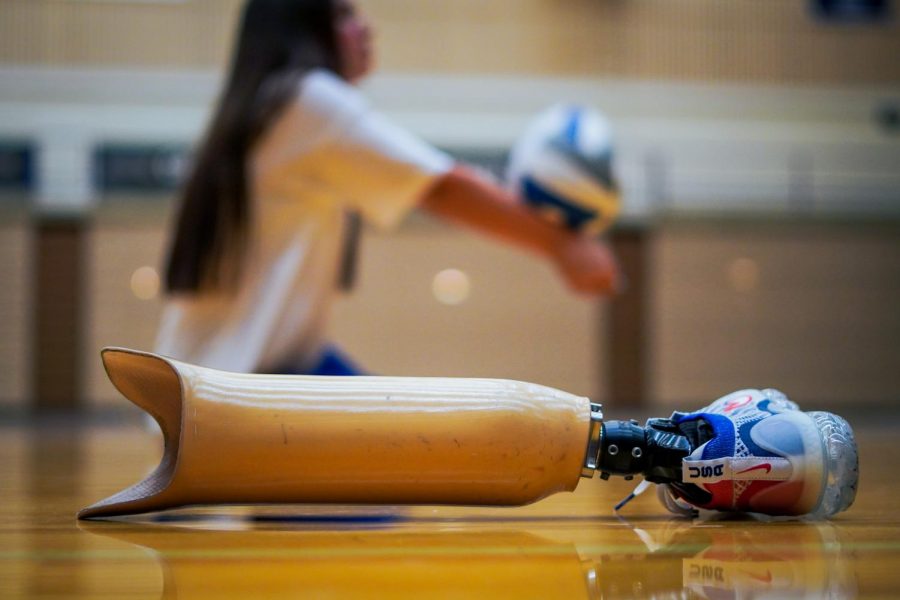
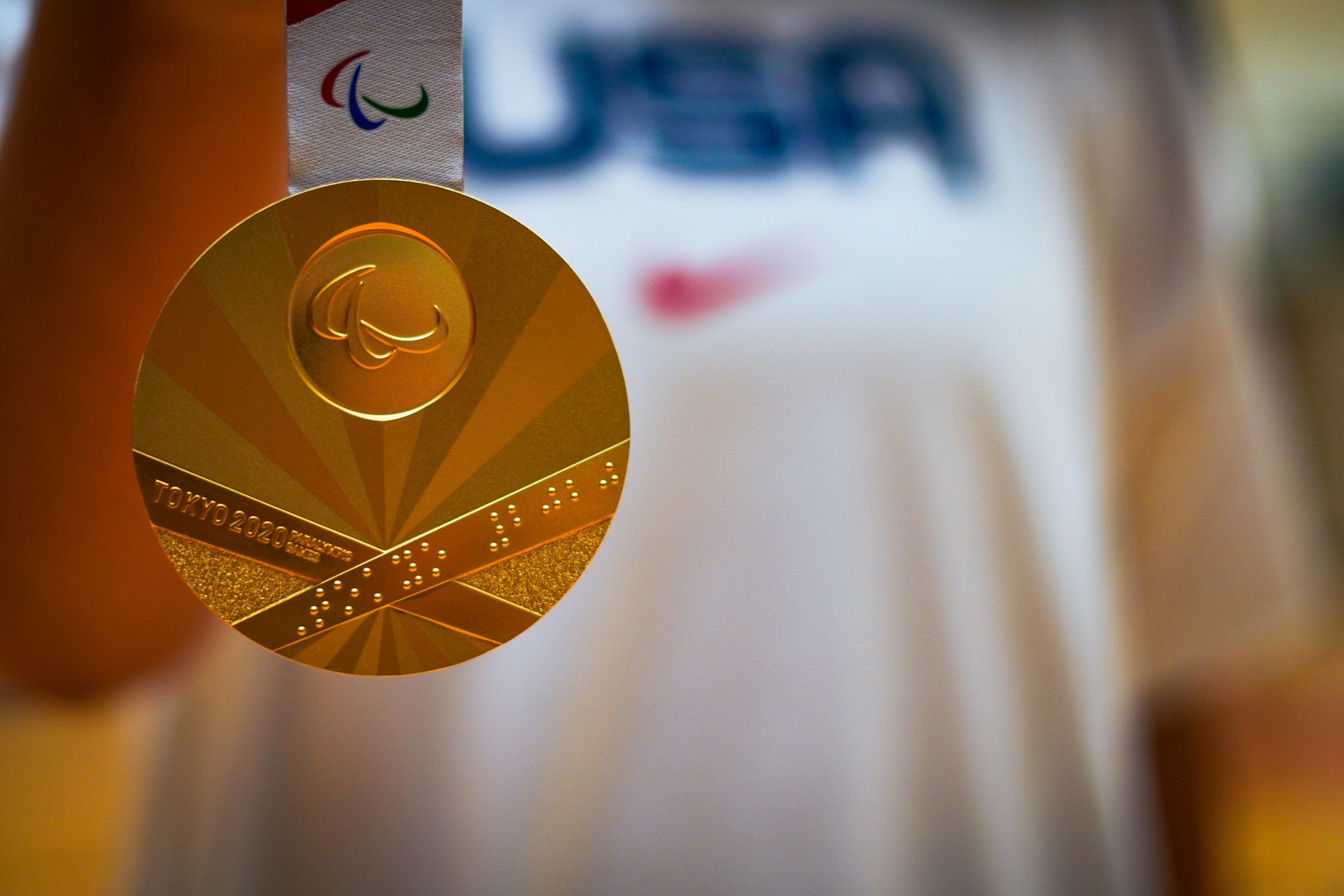
The Dorns • Sep 28, 2021 at 1:30 am
Annie, I just read this story and have to say that you are a remarkable young lady! I know your mom & I have always thought she was one of the most delightful women I have ever met. It appears you are so very much like her. I worked with kids with developmental disabilities for over 25 years & so appreciate & know the strength, dedication & perseverance anyone with any kind of disability faces. You & yr support network obviously didn’t see disability, you saw ABILITY & opportunities & embraced them! You are such a great role model for all children of any age! Congrats on yr many accomplishments & gold metal. I have no doubt you will be an asset to yr college and to our medical field with yr “can do attitude” life experiences & knowledge you have gained already in your young years! The very best of luck to you in all future endeavors.